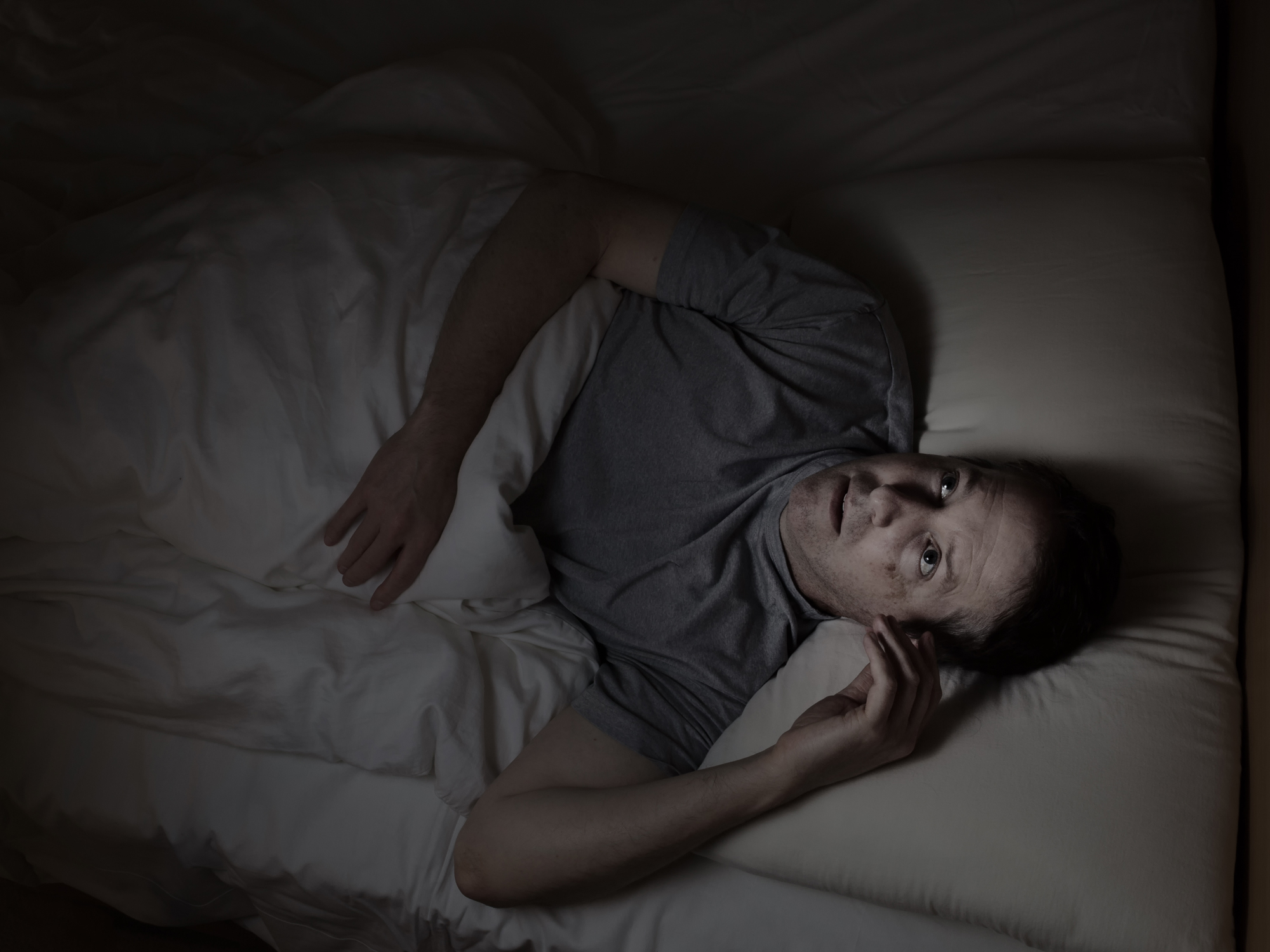Get Easy Health Digest™ in your inbox and don’t miss a thing when you subscribe today. Plus, get the free bonus report, Mother Nature’s Tips, Tricks and Remedies for Cholesterol, Blood Pressure & Blood Sugar as my way of saying welcome to the community!
5 reasons you wake up at night and how to stop

Insomnia is commonly thought of as the inability to fall asleep.
But if you find yourself following a regular bedtime routine, winding down, going to sleep at the same time each night, yet at 2 a.m. you’re staring at the ceiling unable to fall back to sleep, you’re dealing with a phenomenon known as “middle insomnia.”
Sometimes, this middle-of-the-night waking is healthy and normal. Research shows that we tend to sleep in chunks of two to four hours, with a period of being awake sometime during the night.
If you are awake during the night but don’t find it distressing, you can use this brief window to meditate, read or listen to music. The worst thing you can do is to try and force yourself back to sleep.
If you do read, try and use candlelight or dim light. Don’t expose yourself to the blue light of a phone or computer screen, which will disrupt your circadian rhythm.
But if you repeatedly startle awake in the wee hours, and are exhausted each morning, there are a few things that could be happening…
5 reasons for middle insomnia
Waking up a couple of hours before your alarm is set to go off is like being robbed. If you’re anything like me, you need your sleep, crave your sleep and want every last second of it.
Most likely, middle insomnia is happening due to a handful of reasons. And, fortunately, there’s something you can do about each of them…
1. Blood sugar crashes.
The food choices we make each day are intimately linked to pretty much every aspect of our health, and none more than our ability to get a good night’s sleep.
The typical American diet is loaded with refined carbs and sugars. Even small amounts of these eaten throughout the day can create a blood sugar nightmare that wakes you up at night.
The stress hormone cortisol also manages your blood sugar. To your body, an overly rapid change in blood sugar can feel the same as a panic attack or burst of anger, fear or frustration.
Every time your blood sugar crashes, such as after eating a big, sweet dessert, your body goes into a stress response When this happens in the middle of the night, the stress response disrupts your sleep.
A healthy, real-food diet is the answer to this problem. But for a quick fix, try eating a handful of almonds or a spoonful of almond butter or coconut oil before bed.
2. An out-of-control stress response.
For many of us, it’s hard to “unplug” at the end of the day. Thoughts of tasks left undone, worries and plans for the following day won’t leave us alone. Here are a few ways around that:
- “Outsource” your worries. Before bed, write down everything: your worries, to-do lists, plans, even questions. That way, it’s there when you want to worry about it, and you don’t need to keep replaying it in your head.
- Take 20 minutes or so before bed to disconnect from everything, most importantly from electronics. Breathe deeply, meditate, listen to calming music, anything to disconnect the “before” of the day from the “after” of sleep.
- Learn to say no to activities that rob you of down time. Reserve some daytime hours for reading, walking or just staring out the window.
3. Don’t get overtired.
Our bodies naturally want to fall asleep a few hours after sunset. We each have an ideal time, and if you pay attention to your body for a few nights, you’ll notice it. Mine is about 11 pm.
If you stay up past that ideal sleep window, you’ll get that “second wind” that sounds good for getting things done, but really leaves you feeling “wired” and unready for sleep.
4. Alcohol.
A nightcap may seem like a good idea upon occasion, but what alcohol actually does is disrupt your sleep rhythms. It makes you sleep more deeply at first, often leading to waking up during the night as if it were time to get up.
5. Medications.
Antidepressants, particularly benzodiazepines, are notorious sleep disruptors. Even medications meant to improve sleep, such as Ambien, can have a negative impact. Always work with your health care provider in order to make changes to your medication.
Other medications that can disrupt your sleep, according to the National Sleep Foundation, include:
- Beta Blockers
- Corticosteroids
- Headache pills that contain caffeine
- Thyroid hormones
Editor’s note: Are you feeling unusually tired? You may think this is normal aging, but the problem could be your master hormone. When it’s not working, your risk of age-related diseases skyrockets. To reset what many call “the trigger for all disease” and live better, longer, click here to discover The Insulin Factor: How to Repair Your Body’s Master Controller and Conquer Chronic Disease!
Sources:
- A Blood Sugar Crash + 4 Other Reasons You’re Waking Up In The Middle Of The Night — mindbodygreen.com
- How Medications May Affect Sleep — National Sleep Foundation














